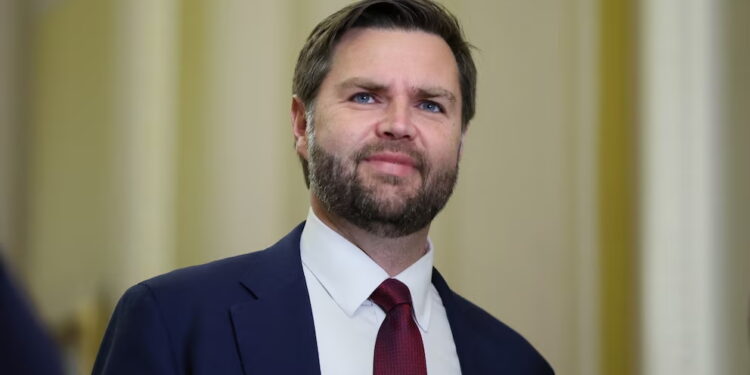Lagatar24 Desk
New Delhi: United States Vice President JD Vance on Thursday called for a balanced and restrained response from India in the aftermath of the Pahalgam terror attack, which left 26 people dead, including a Nepali national. Speaking in a podcast interview with Fox News, Vance urged Pakistan to assist in tracking down the attackers, stating that if they are responsible, they must cooperate with India to bring the perpetrators to justice.
“Our hope here is that India responds to this terrorist attack in a way that doesn’t lead to a broader regional conflict. And we hope, frankly, that Pakistan, to the extent that they’re responsible, cooperates with India,” Vance said.
Condolences And Solidarity
Vance, who was visiting India with his family when the attack occurred, had previously spoken with Prime Minister Narendra Modi to offer condolences and express strong condemnation.
“Usha and I extend our condolences to the victims of the devastating terrorist attack in Pahalgam, India. Our thoughts and prayers are with them as they mourn this horrific attack,” he posted on X.
The US administration, including President Donald Trump, has publicly condemned the attack, describing it as “unconscionable,” while stopping short of directly blaming Pakistan.
Background Of The Attack
The April 22 attack occurred in the Baisaran Valley—a popular tourist spot in Jammu and Kashmir, dubbed “Mini Switzerland” for its natural beauty. Eyewitnesses described panic and chaos as multiple terrorists opened fire on unarmed civilians.
India has linked the attack to The Resistance Front (TRF), a known proxy of Pakistan-based Lashkar-e-Taiba (LeT). In response, India has revoked all Pakistani visas, suspended the Indus Waters Treaty, and launched large-scale operations to track the attackers and their handlers.
Meanwhile, around 1,000 Pakistani nationals have been repatriated, and airspace restrictions have been imposed by both countries amid fears of escalating conflict.
The incident is one of the deadliest terror attacks since the abrogation of Article 370 in 2019, marking a serious setback to regional peace efforts.







